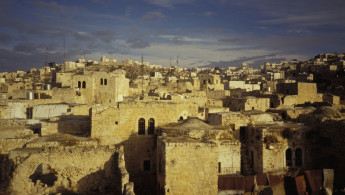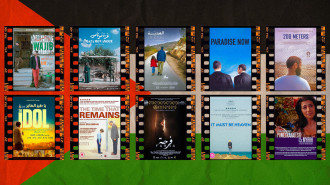UN warns of desperate economic conditions in Palestine's Hebron
The UN’s Middle East envoy Monday warned of a new “spiral of violence” in the flashpoint West Bank city of Hebron unless daily life for its Palestinian residents improves.
Nickolay Mladenov said during a visit that while the city was the main Palestinian economic hub in the occupied West Bank, little trickles down to those who live there.
“It is also the city with the highest rate of unemployment and poverty compared to the rest of the West Bank,” he told a news conference, alongside the Palestinian governor, Kamil Hmeid.
“About 30 percent of people in all the governorate are classified as poor compared to 18 percent in the rest of the West Bank,” he said in English.
“Given the spiral of violence that we saw last year,” he said, there is a pressing need for a strategy “that addresses the human rights aspects of the situation here, that addresses the access to services ... looks how to create more economic opportunities for people.”
With 200,000 Palestinian inhabitants, Hebron is the largest city in the West Bank and the only one where 500 Israeli settlers have moved into enclaves in its heart.
They are guarded by thousands of Israeli soldiers who scan the streets from watchtowers and from behind concrete slabs.
Hmeid said that in Hebron’s Old City, 1,050 Palestinian families are caught between the fortified settler compounds and more than 150 army barricades, checkpoints and other obstacles.
“The Old City is entirely under siege,” he said in Arabic, adding that some families “are forced every day to pass through Israeli electronic checkpoints and are body-searched every day. This includes families, women and children. This is violating their human rights.”
 |
powder keg, with the ever-present threat of violence hanging in the air |  |
Once a prosperous trading center, Hebron has become a powder keg, with the ever-present threat of violence hanging in the air.
Tensions are especially high around the shrine known to Muslims as the Ibrahimi Mosque and to Jews as the Cave of the Patriarchs and revered by both.
Many attacks and attempted attacks have happened there, especially since a wave of violence broke out on Oct. 1, 2015, in the Palestinian territories, occupied Jerusalem and Israel.
Israel sentenced Monday Rayed Khalil, a Palestinian, for two life terms for the 2015 killing of two Israelis and an additional 20 years for three attempted murders in the attack at a Tel Aviv office building, with no possibility of parole, the Justice Ministry said.
The court ruled that Khalil, from Hebron, should have no prospect of early release as his November 2015 rampage met the legal definition of “aggravated circumstances.”
A spokeswoman said Khalil would also be ineligible for inclusion in any future prisoner release that might be agreed between Israel and the Palestinians.
At a separate court hearing Monday in Lod, near Tel Aviv, judges jailed another Palestinian for 16 years and six months.
Tamer Weridat, aged around 30, stabbed and wounded an Israeli at the start of a wave of violence.
Since then, 241 Palestinians, 36 Israelis, two Americans, a Jordanian, an Eritrean and a Sudanese have been killed, according to an AFP count.
Israeli courts have recently been handing out stiff sentences to perpetrators who survived.
On Nov. 2, a military tribunal sentenced a Palestinian minor to life for stabbing to death a 38-year-old Israeli woman in her home in a West Bank settlement.



